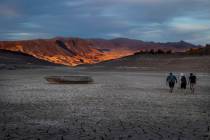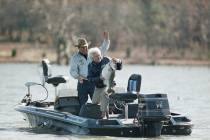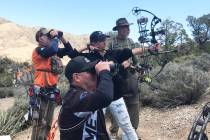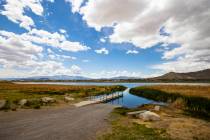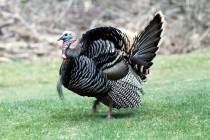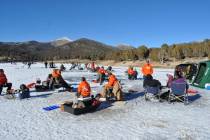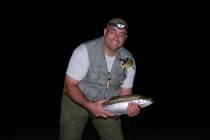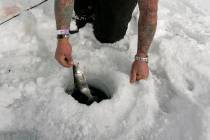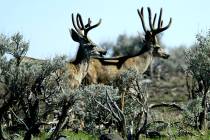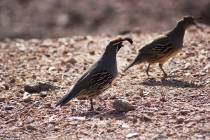Now is time to secure right to hunt, fish, trap
Last week, I wrote of the surprises that sometimes come out of the Nevada Legislature when it’s in session, and it didn’t take long to find one. On Monday, one of those surprises emerged on the floor of the State Senate with the introduction of Senate Joint Resolution No. 7, a surprise that could have far-reaching ramifications for the sportsmen and sportswomen of the Silver State.
This legislation “proposes to amend the Nevada Constitution to preserve the right to hunt, fish and trap for the residents of this State.” This would be accomplished by adding a new section to Article 1 of the Nevada Constitution that would read as follows: “The right to hunt, fish and trap, including by the use of any traditional method, must be preserved for the residents of this State and managed through statutes and regulations which preserve that right. Hunting, fishing and trapping of wildlife by members of the public is the preferred means of managing wildlife in this State.”
Should this measure pass and be approved by state voters, Nevada would join 17 other states that have taken similar steps to protect hunting and fishing for its citizens. Those states, according to the National Conference of State Legislatures, have language in their constitutions that guarantees the right to hunt and fish. In 16 of those states the language is voter approved.
Perhaps the people of Vermont showed the most foresight by crafting their language guaranteeing citizens the right to hunt and fish back in 1777. It wasn’t until 1996, and the years since, that other states have followed suit. Those states include Alabama, Arkansas, Georgia, Idaho, Kentucky, Louisiana, Minnesota, Montana, Nebraska, North Dakota, Oklahoma, South Carolina, Tennessee, Virginia, Wisconsin and Wyoming. Mississippi will consider such a guarantee on its 2014 ballot.
Like Nevada, each of these states has a strong traditional outdoor heritage. One might ask, “Why would hunters and anglers feel compelled to seek constitutional protections for pursuits that have been an important part of life in the Great Basin and the Mohave Desert since mankind first showed up here?”
Perhaps the answer can be found in a statement from a website established to promote constitutional protection of the outdoor heritage in Tennessee — huntandfishtc.com. It reads, “Hunting and fishing have long been a part of Tennessee’s history, lore and culture. This is our chance to protect our outdoor traditions in perpetuity.
“Today, hunting and fishing could be banned by a vote in the General Assembly or by a misguided lawsuit. This amendment to the state constitution will provide a strong clarification of an individual’s right to hunt and fish in Tennessee, should these traditions be challenged in a court of law. The added level of protection would be significant, as it does not currently exist.
“Tennessee’s landscape is changing. Political winds are constantly shifting. We have an opportunity to secure this right before it’s too late.”
Substitute Nevada in place of Tennessee, and State Legislature in place of General Assembly, and I think you will understand.
As many Americans flee the large urban centers and move into what have long been relatively small and even rural communities — yes, even Las Vegas was relatively small not too long ago — they sometimes have difficulty understanding some aspects of the lifestyle that long existed in those communities. And rather than live and let live, they set out to change our new surroundings into something that more closely resembles our old ones. Some might even go so far as to close access to public lands or use the legislative process to do away with or significantly limit otherwise legal activities, such as hunting, fishing or trapping, simply because they don’t personally like them.
Nevada’s landscape is changing. Political winds constantly are shifting. Perhaps now is the opportunity to secure the right to hunt, fish and trap before the winds driven by lack of understanding shift too far.
Freelance writer Doug Nielsen is a conservation educator for the Nevada Department of Wildlife. His “In the Outdoors” column, published Thursday in the Las Vegas Review-Journal, is not affiliated with or endorsed by the NDOW. Any opinions he states in his column are his own. He can be reached at intheoutdoorslv@gmail.com.



